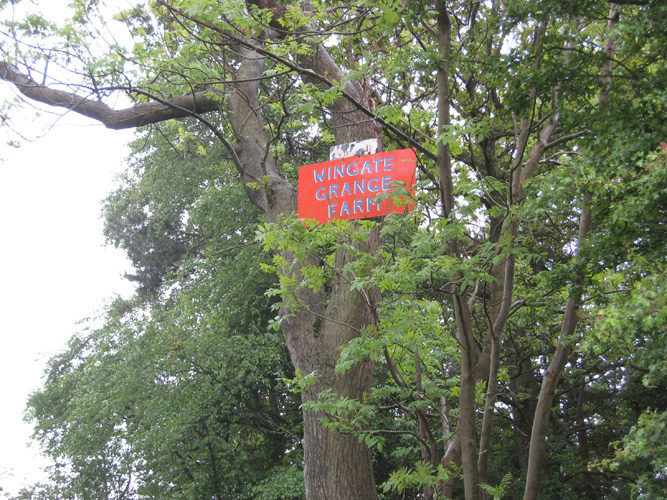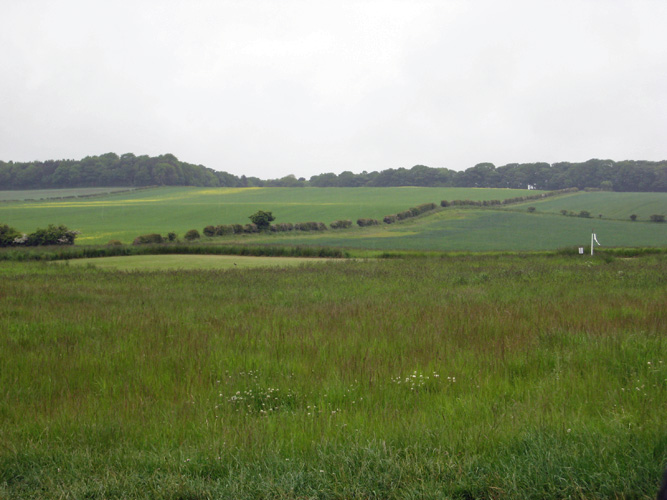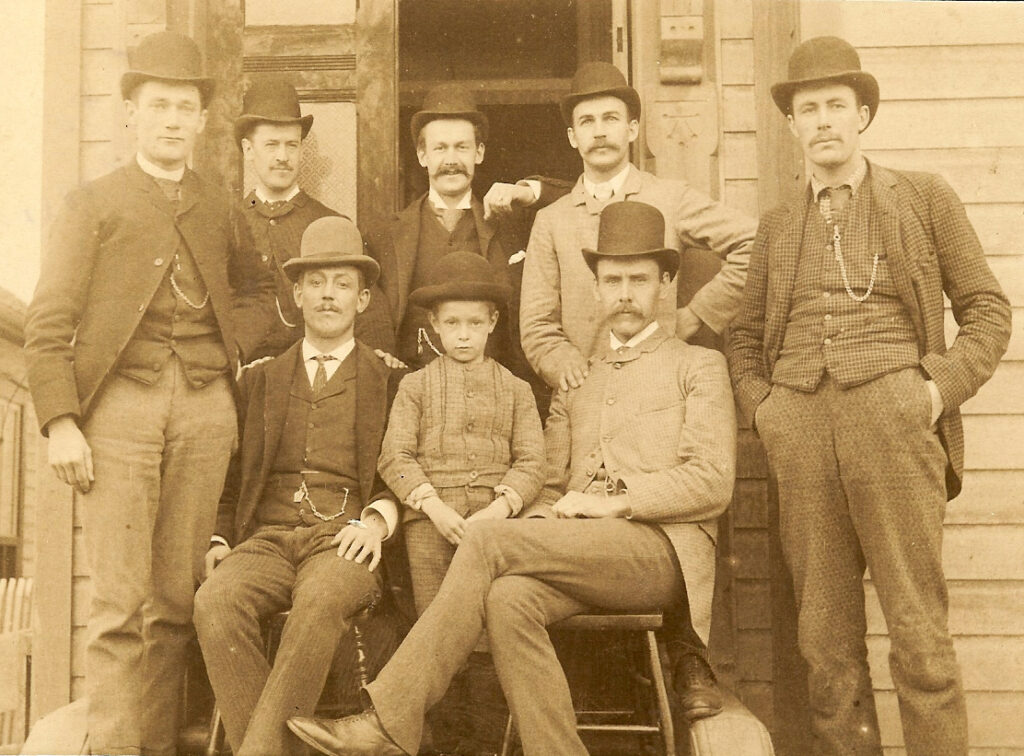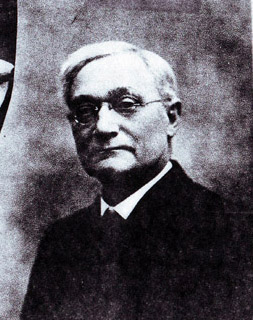It is amazing how much a last will and testament can reveal about someone’s life – even a life that ended almost 250 years ago.
Ralph Clark (or Clerk), a farmer in County Durham, England, died in 1776 at about age 55.1 He must have known he was dying because he made out a detailed will,2 dated a month before his death. He was probably worried because his wife had died the previous year and their children would be orphaned.
Ralph Clark was my five-times great-grandfather; I am descended from him through his second-youngest son, John Clark, who left England around 1797 and settled in Montreal.
I knew little about John’s origins in County Durham. Then I found a note of his birthdate (June 9, 1767) in some family records.3 That discovery set me on track to find the names of John’s parents and most of his siblings. After a visit to Durham in 2009, I set my most of my research on the Clark family aside and only recently picked it up again when I hired a professional genealogist in Durham. She found Ralph’s will.

Ralph Clark was probably born in Kirk Merrington Parish, County Durham, around 1721. His future wife was Margaret Pearson, baptized 31 Oct 1725, in Kirk Merrington Parish.4 Ralph and Margaret married on May 8, 1746 in Kirk Merrington5 and the first of their twelve children was born a year later.
Kirk Merrington is a rural parish south of the city of Durham. The nine eldest children were baptized there, or in Auckland Saint Andrew, between 1747 and 1762. The family probably moved to nearby Kelloe Parish around 1763, and the three youngest, Edward, John and Lancelot, were baptized at St. Helen’s Church in Kelloe. In the 1760s and 1770s, the family lived on a farm called Wingate Grange, and Ralph’s will revealed that he also leased a farm called Hurworth in Kelloe. He did not own the land.
An advertisement published in the Newcastle Courant on several occasions between 11 Oct and 10 Jan 1778 described Wingate Grange Farm:6
TO BE LET
(Any one or two farms and entered upon at May Day next)
All that tenant or farm situated at Wingate Grange in the Parish of Kelloe, late in the possession of Ralph Clark deceased, tenant by survey 526 acres and tithe free, within six miles of Durham, well watered and enclosed; a draw kiln lies contiguous and limestone upon the premises; there are two very good farm houses, four barns and all other necessary buildings. The son of the late tenant above mentioned will not be treated with. Also, the farm in the possession of Jonathan Moody, situate at Wingate Grange aforesaid, containing 161 acres – enquire at Elemore Hall or Mr Henry Angus at Birkenside near Shortley Bridge.

Margaret had died in 1775. The record of her burial, included in the Bishop’s Transcripts for Kelloe parish, simply says, “Oct. 15, Marg, Wife of Ra. Clerk of Wingate Grainge.”7 So as he wrote his will, Ralph was clearly concerned about his children’s prospects.
Ralph mentioned his cousin Robert Dent of Morden Red House in Sedgefield parish.8 Although he did not name Dent as the children’s guardian, he did give Dent some financial control over the bequests left to the younger children. It is not clear where the children lived after their parents’ deaths. Perhaps the younger ones lived with the Dent family, or with their older siblings.
Ralph must have realized that each of his children had different needs, so he varied his bequests to them. He also ensured that not just his sons, but also his daughters, received inheritances.
Daughters Letitia and Elizabeth were already married when their father died. Letitia (also known as Lettice, and married to butcher Richard Jefferson) was to receive £15.
Ralph seems to have been particularly concerned about Elizabeth — or perhaps more accurately, about her husband, George Dobson. Ralph left £40 for Elizabeth in trust, and her husband “shall have no power or control whatsoever and shall in no wise be liable to the payment of his debts or otherwise.” Son Thomas was left £20 and a horse. Anne was to have £40 and a third of Ralph’s household goods when she reached 21. Ralph and Edward would each get £60 when they reached 21. Lancelot was to receive £90 when he turned 21. Ralph appointed William, Mary and Margaret as joint executors and residuary legatees.
My four-times great-grandfather John Clark, who was age nine at the time of his father’s death, was to receive £70 when he turned 21 – about £8500 in today’s money. While still living in England, John became a butcher and acquired some property, probably in the part of the city of Durham known as Fleshergate, where the butchers plied their trade. He also bought property shortly after arriving in Montreal. Perhaps he was putting his inheritance from his father to work.
Updated April 27, 2019 to add footnote on Robert Dent.
See also:
Janice Hamilton, “John Clark, of Durham, England,” Writing Up the Ancestors, May 29, 2014, https://www.writinguptheancestors.ca/2014/05/john-clark-of-durham-england.html
Sources and notes:
Special thanks to Margaret Hedley, Past Uncovered, for research in County Durham, 2018-2019.
- Burials, Stockton District, record # 573795 2, St. Edmund the Bishop Church, Sedgefield, 8 Nov. 1776, Ralph Clerk {Clark] of Wingate Grange in the Parish of Kelloe.
- Will of Ralph Clark, Oct. 11, 1776; 1776/C8/2, University of Durham Special Collections Department
- Black notebook of Bagg family births, marriages and deaths; private collection. Also Northumberland and Durham Baptisms, Northumberland & Durham Family History Society, Findmypast.com
- “England Births and Christenings, 1538-1975,” database, FamilySearch(https://familysearch.org/ark:/61903/1:1:NBC9-BQD : 11 February 2018, Margret Pearson, 31 Oct 1725); citing , index based upon data collected by the Genealogical Society of Utah, Salt Lake City; FHL microfilm 91,097, 94,097.
- The Church of Jesus Christ of Latter-day Saints, “International Genealogical Index (IGI),” database, FamilySearch(https://familysearch.org/ark:/61903/2:1:MDK6-CRN : accessed 15 April 2019), entry for Ralph Clark, batch A23286-7; citing FHL microfilm 455,471; submitter not specified. This marriage is also included in Boyd’s Marriage Index, 1538-1840, Findmypast.com
- Find My Past
- “England, Durham Diocese Bishop’s Transcripts, 1639-1919,” images, FamilySearch (https://familysearch.org/ark:/61903/3:1:S3HT-DZW3-3VF?cc=1309819&wc=9K5M-T3D%3A13618101%2C28349502%2C28349503 : 12 June 2014), Durham > Kelloe > 1762-1852 > image 15 of 723; Record Office, Matlock. Accessed March 31, 2019.
- Possibly, baptism of Robert Dent in Sedgefield in 1725, father John Dent; and marriage of Johannes Dent to Elizabetha Clark in Sedgefield in 1721. “England Births and Christenings, 1538-1975,” database, FamilySearch(https://familysearch.org/ark:/61903/1:1:J7SK-P2C : 11 February 2018, Robert Dent, 20 Oct 1725); citing , index based upon data collected by the Genealogical Society of Utah, Salt Lake City; FHL microfilm 91,112. “England Marriages, 1538–1973 ,” database, FamilySearch(https://familysearch.org/ark:/61903/1:1:NLZY-9MB : 10 February 2018), Johannes Dent and Elizabetha Clark, 16 May 1721; citing Sedgefield, Durham, England, reference , index based upon data collected by the Genealogical Society of Utah, Salt Lake City; FHL microfilm 91,112.
For more information about the County Durham region in the mid-1800s, see the following publication through Google Books online. You can search for the names of people and places. History, Topography, and Directory of the County Palatine of Durham: Comprising a General Survey of the County, with Separate Historical, Statistical, and Descriptive Sketches of All the Towns, Boroughs, Ports, Parishes, Chapelries, Townships, Villages, Wards, and Manors. To which are Subjoined A History and Directory of Newcastle-upon-Tyne, and a List of the Seats of the Nobility and Gentry, Whellan, William, & Co, Whittaker and Company, 1856.


